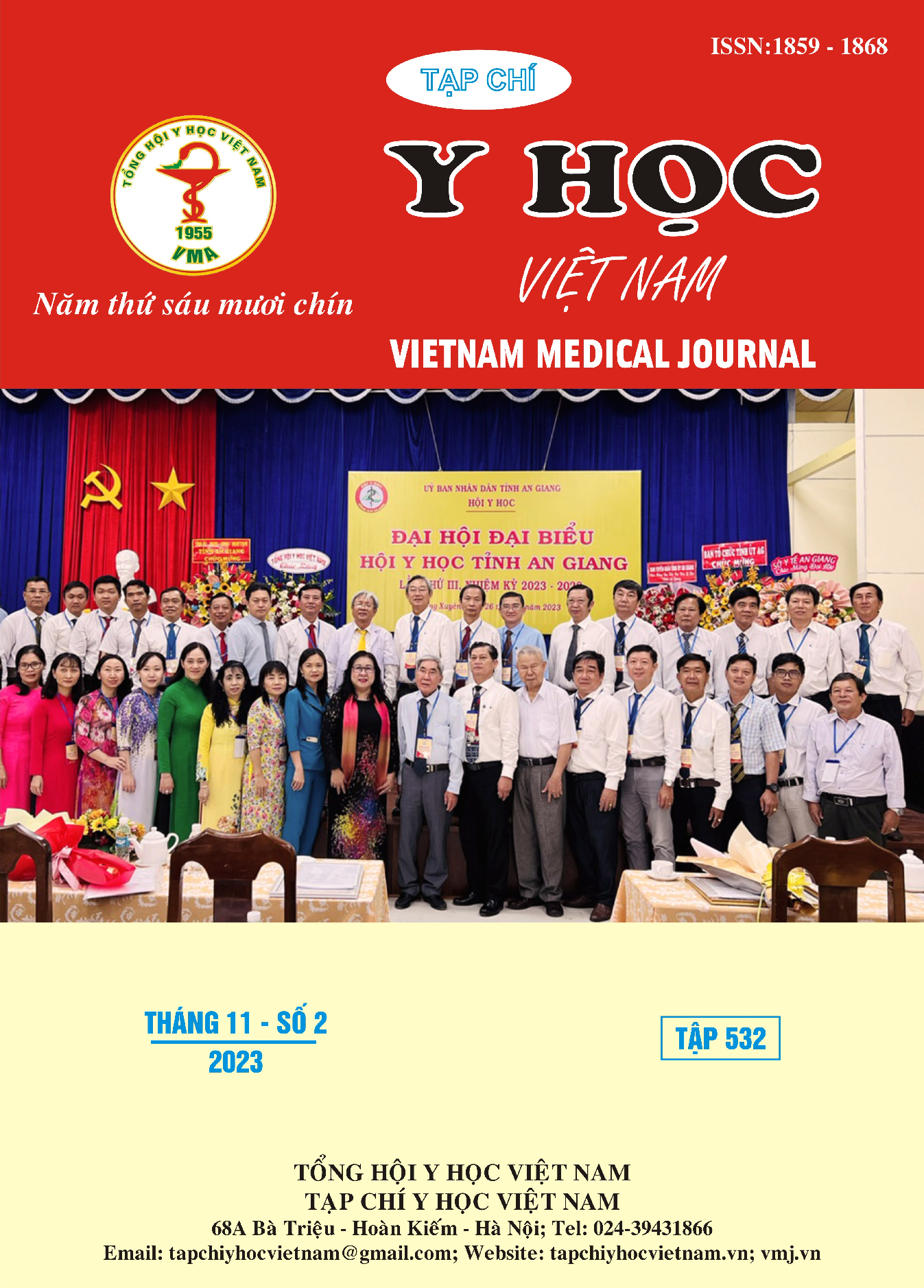APPLYING SNP ARRAY TECHNIQUE TO DETECT GENETIC ABNORMALITIES OF FETUS WITH CARDIOVASCULAR ABNORMALITIES ON ULTRASOUND
Main Article Content
Abstract
Objectives: analysis of the genetic obnormalities of fetuses with echo-cardiographic abnormalities by SNP array. Materials and methods: A cross- sectional descriptive study on 62 fetuses with cardiovascular malformations on ultrasound underwent amniocentesis, during the period from 10/2022 to 6/2023, performed at the Center for Prenatal Diagnosis of the National Hospital of Obstetrics and
Gynecology. Results: SNP array detected 13/62 (21.0%) fetus with pathogenic copy number variations (CNVs), 2/62 (3.2%) fetus with variants of unknown significane (VOUS) and 4/62 (6.5%) fetus with benign CNVs. Pathogenic CNVs was detected with the highest rate in the group of multiple malformations with cardiovascular abnormalities (31.6%), the rate in the group cardiovascular abnormalities (18.5%), the lowest rate was in the group of isolated heart defects (7.6%). The detection rate of chromosomal abnormalities of SNP array is higher than that of karyotyping (21.0% compare to 6.5%) with statistical significance (p < 0.05). Conclusion: SNP array increases the overall detection of pathogenic CNVs by 14.5% compare to karyotyping, which improves the detections associated with congenital heart disease (CHD). SNP array is an effective prenatal diagnosis technique for fetuses with cardiovascular abnormalities and provides valuable insights for fetal prognosis, making prenatal counseling more effective.
Article Details
Keywords
SNP array, congenital heart disease, copy number variation (CNV), chromosomal abnormalities, karyotyping.
References
2. Liu Y, Chen S, Zühlke L, et al. Global birth prevalence of congenital heart defects 1970– 2017: updated systematic review and meta- analysis of 260 studies. Int J Epidemiol. 2019;48(2):455–463. doi:10.1093/ ije/dyz009
3. Oster ME, Knight JH, Suthar D, Amin O, Kochilas LK. Long-term outcomes in single- ventricle congenital heart disease. Circulation. 2018;138(23):2718–2720. doi:10.1161/CIRCULATIONAHA.118.03 6821
4. Kovacevic A, Simmelbauer A, Starystach S, et al. Counseling for prenatal congenital heart disease-recommendations based on empirical assessment of counseling success. Front Pediatr. 2020;8:26. doi:10.3389/fped.2020.00026
5. Hopkins MK, Dugoff L, Kuller JA. Congenital heart disease: prenatal diagnosis and genetic
associations. Obstet Gynecol Surv. 2019; 74 (8): 497–503. doi: 10.1097/ OGX.0000000000000702
6. Huang H, Cai M, Wang Y, Liang B, Lin N, Xu
L. SNP Array as a Tool for Prenatal Diagnosis of Congenital Heart Disease Screened by Echocardiography: Implications for Precision Assessment of Fetal Prognosis. Risk Manag Healthc Policy. 2021 Jan 27;14:345–55.
7. Nguyen D-Q, Webber C, Ponting CP. Bias of selection on human copy-number variants. PLoS Genet. 2006 Feb;2(2):e20.
8. Wang Y, Cao L, Liang D, Meng L, Wu Y, Qiao F, et al. Prenatal chromosomal microarray analysis in fetuses with congenital heart disease:
a prospective cohort study. Am J Obstet Gynecol. 2018 Feb;218(2):244.e1-244.e17.
9. Mademont-Soler I, Morales C, Soler A, Martínez-Crespo JM, Shen Y, Margarit E, et al. Prenatal diagnosis of chromosomal abnormalities in fetuses with abnormal cardiac ultrasound findings: evaluation of chromosomal microarray-based analysis. Ultrasound Obstet Gynecol. 2013;41(4):375–82.
10. Jansen F a. R, Blumenfeld YJ, Fisher A, Cobben JM, Odibo AO, Borrell A, et al. Array comparative genomic hybridization and fetal congenital heart defects: a systematic review and meta-analysis. Ultrasound Obstet Gynecol. 2015;45(1):27–35.


